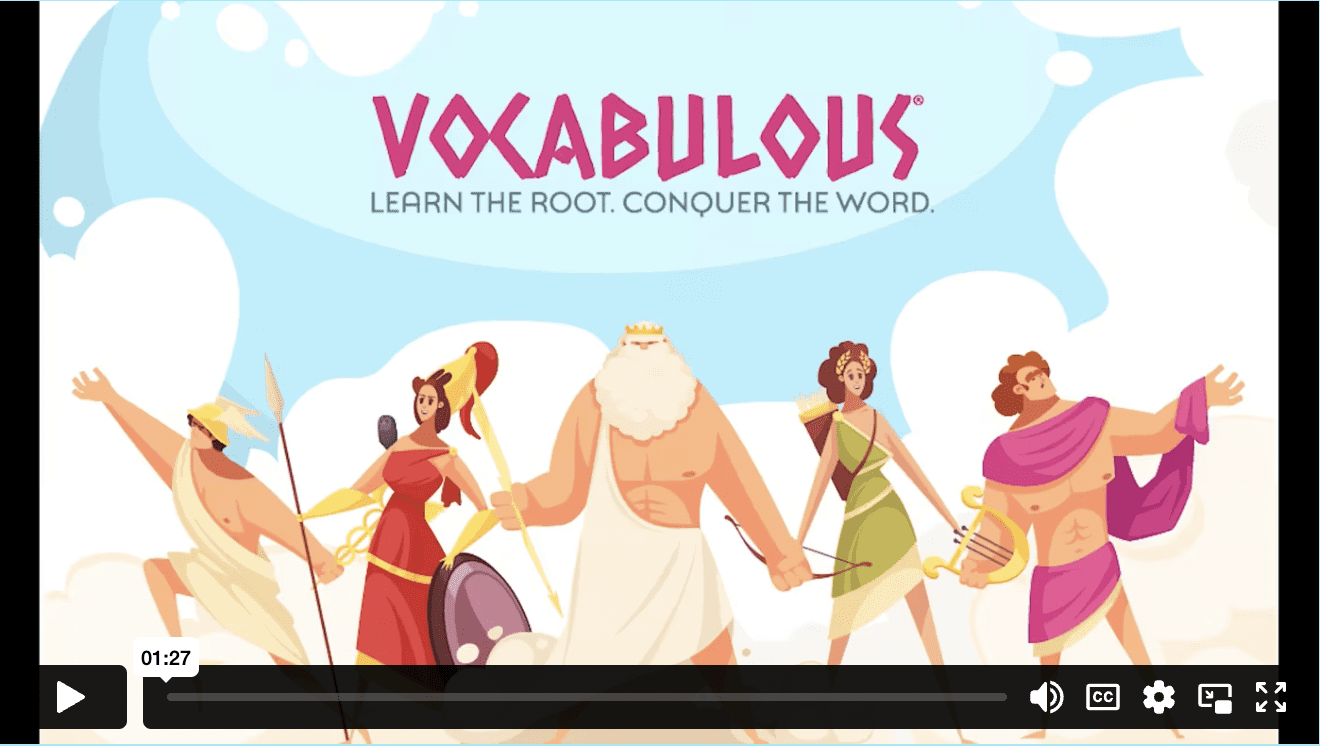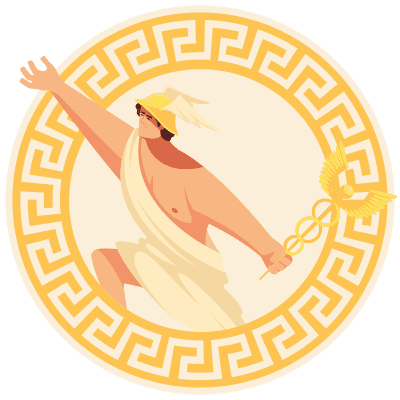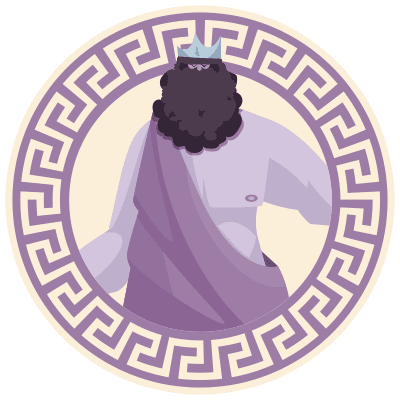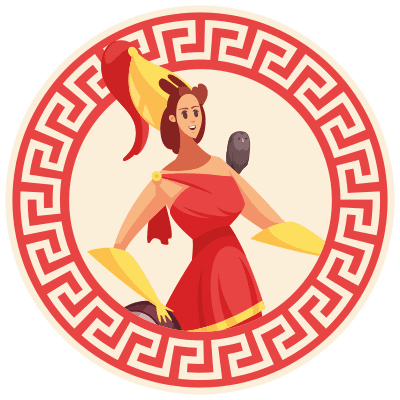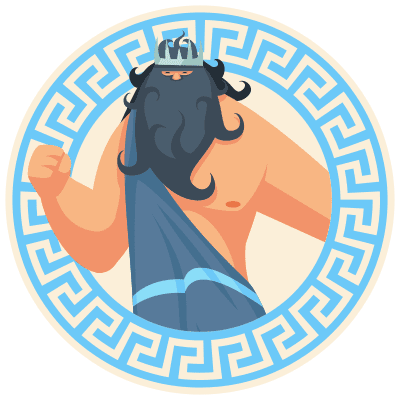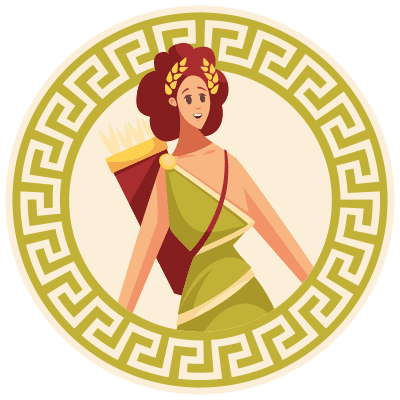ABOUT

🌟Vocabulous is hiring a part-time Education Programmes Lead🌟
Click here for more information
WHAT IS VOCABULOUS?
Vocabulous is a website that improves students' English vocabulary skills in Key Stages 2 and 3 English lessons.
Vocabulous uses Latin and Greek root words to teach word patterns. Students use these roots to work out the meaning of unfamiliar vocabulary, so that by the end of the programme, they have the skills they need to decipher new words on their own.
For example, the root “scrip-” meaning “write” can help students understand that “inscription”, “manuscript” and “prescription” are all related to writing.
Vocabulous teaches 26 roots and over 1,000 English words in 36 ready-to-use lessons, ideal for weekly use for one academic year or fortnightly for two years.
WEBSITE DESIGN
OVER 200 INSTRUCTIONAL VIDEOS

There's a video teaching each new root, and videos showing how 8 derivatives come from that root. Each video clearly shows the root, prefixes and suffixes, explains the definition and shows an example picture to help students retain the information.
12 QUIZ TYPES
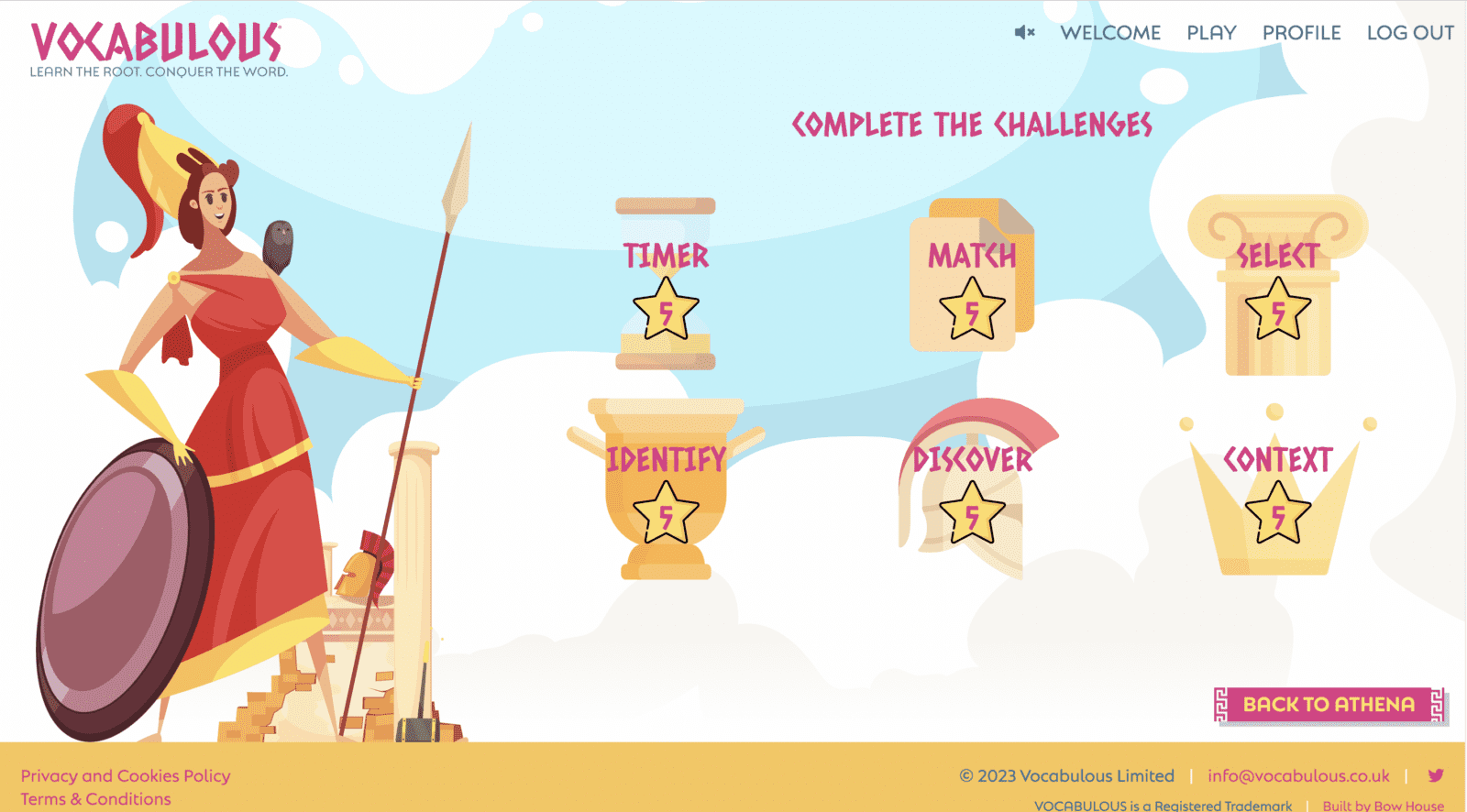
12 quiz types, all based on vocabulary acquisition research. Students practise different skills, such as breaking down a word into its morphemes, applying root knowledge to a new word and working out which word is appropriate in context.
TEACHING TIER 2 AND 3 VOCABULARY

The words that are taught on Vocabulous are Tier 2 and 3 vocabulary that derive from Latin and Greek roots. Some of the words are quite complex, but we show students that they can work out their meaning from their knowledge of the root.
10 LEVELS, BASED ON GREEK GODS AND GODDESSES

Students have 10 levels to complete to win the 10 badges, each centred around a Greek God or Goddess. The levels teach 2-3 roots and revise previously learnt material before awarding a badge. Teachers can pace their students' progress by unlocking elements in order.
INTERACTIVE LEARNING MODULE

In the learning module, there is a series of videos and questions, which teach the root and 8 of its derivatives, and then ask students to answer questions so they are engaging with the material straight away. In this question, students have to identify the root within a word.
READY-MADE LESSON PLAN

There's a clear structure to learning each root. First, the Learn module is completed either individually or as a class. Then, students individually complete 6 quizzes, each testing different skills. Finally, students can rewatch the videos to revise.
PROFILE PAGE
Students can see how many stars they've achieved, as well as their highest and lowest root. They can select their avatar and see where they are on the class leaderboard. As they complete different levels, the badges along the bottom light up.
CONTEXT QUESTIONS FOR READING COMPREHENSION

One of the hardest quiz types asks students to use the context of a sentence to work out which one is missing the given word. When the correct answer is selected, that tile disappears. This is building important reading comprehension skills.
How can Vocabulous be used in schools?
5 REASONS TO USE VOCABULOUS IN YOUR CLASSROOM

Many vocabulary programmes teach lists of words and focus on learning their definitions. Vocabulous teaches the root patterns that make up English words, and trains students to use these patterns to work out unfamiliar words.
By learning these patterns and how to identify them in new words, students are able to work from pre-existing knowledge to new understanding. This is key for them to be able to expand their own vocabulary outside of the website.
Latin and Greek make up the foundations of around 60% of English vocabulary, and in some fields, such as science or technology, this figure is closer to 90%. Vocabulous teaches 26 Latin and Greek roots that give rise to around 1,000 English words. By learning one root from Latin or Greek, students will be able to work out the meaning of 20+ English words that derive from the root.
Vocabulous is designed to give students greater morphological awareness, which is the ability to break down words into prefixes, roots and suffixes. Vocabulous applies this principle to English vocabulary, teaching a small number of word parts (or morphemes, such as roots and prefixes) and showing students how they can use these parts to work out complex new words in English. This is a skill that can be transferred to any subject lesson.
Recent Ofsted publications have highlighted the importance of vocabulary acquisition for progression in all aspects of English, and specifically mentioned the benefit of learning Latin and Greek roots and etymology. Vocabulous is a ready-to-use programme which is not only fun for students, but gives teachers the resources they need to be confident teaching etymology and morphology.
Vocabulous provides 36 lessons, featuring over 400 videos and quizzes, with accompanying extension worksheets. This means that teachers are supported to incorporate explicit vocabulary instruction as part of their regular English lessons.

MEET THE FOUNDER - LUCY HUELIN
Vocabulous is founded by Lucy Huelin, a Latin and Classics teacher turned EdTech entrepreneur based in York. Lucy won the Let Teachers SHINE competition in 2021 with her website, Vocabulous, and has since been working hard to bring some of the key benefits from learning ancient languages to students across the country as part of their English learning.
Prior to founding Vocabulous, Lucy studied Classics at the University of Oxford and became a Chartered Accountant before qualifying as a Latin and Classics teacher.
FUNDING AND SUPPORT

Vocabulous is proud to be funded by The SHINE Trust, an education charity based in Leeds, through their Let Teachers SHINE competition. Let Teachers SHINE offers up to £25,000 over two years to teachers with brilliant ideas to help disadvantaged children in the North of England succeed in English, maths or science. Vocabulous was first awarded funding in 2021 and has since received follow-on funding from SHINE to bring the website to more students across the country.
Vocabulous has been awarded £6,000 funding from the Christ Church Research Centre, Oxford, to undertake a pilot research study into the impact of learning Latin via technology.
Professor Arlene Holmes-Henderson led this research trial, which evaluated the impact that use of the Vocabulous website has on students’ understanding and retention of English vocabulary. To find out more, click here.
